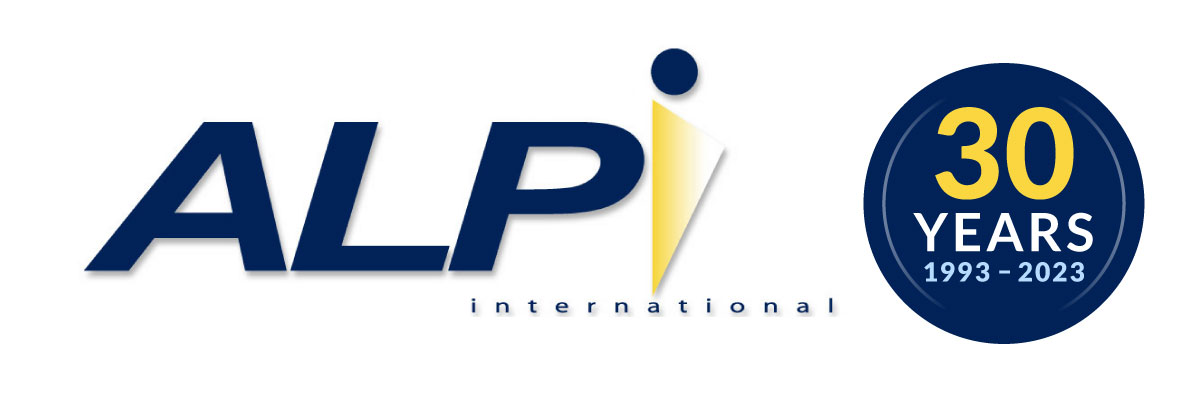Foundation Level—ISTQB Software Testing Certification Training
Course Description




Why choose ALPI for ISTQB software testing certification training?
- ALPI's Foundation Level 4 course is accredited for ASTQB PROFICIENCY DISTINCTION! This is a special, extra recognition you will receive from ASTQB because ALPI's superior course design includes accredited interactive training with hands-on examples.
- ALPI's training is accredited by ASTQB, the U.S. Board for ISTQB certification, so you can be certain you are getting excellent training quality.
- We use certified live instructors in both our in-person and virtual classes so you can ask questions and get answers right away.
- We focus on real-world examples.
- We teach using interactive, hands-on exercises.
- This ALPI course is eligible for a free refresher guarantee so you can re-take the course within 4 months at no additional charge. Contact us for information about this unique benefit that gives you peace of mind. This class is not eligible for free exam retake.
ISTQB Foundation Level is relevant across software delivery practices including Waterfall, Agile, DevOps and Continuous Delivery.
This qualification is suitable for anyone who needs to demonstrate practical knowledge of the fundamental concepts of software testing including people in roles such as testers, test analysts, test engineers, test consultants, test managers, user acceptance testers and software developers.
It is also appropriate for individuals who need a basic understanding of software testing including project managers, quality managers, software development managers, business analysts, IT directors and management consultants.
By the end of this course, an attendee should be able to:
- Promote efficient and effective communication by using a common vocabulary for software testing.
- Understand fundamental concepts of software testing.
- Demonstrate understanding of how different development and testing practices, and different constraints on testing, may apply in optimizing testing to different contexts.
- Contribute effectively in reviews.
- Use established techniques for designing tests at all test levels.
- Interpret and execute tests from given test specifications. Report on test results.
- Understand test management principles for resources, strategies, planning, project control and risk management.
- Write and communicate clear and understandable defect reports.
- Understand the project factors that drive the test priorities and test approach.
- Understand the value that software testing brings to stakeholders.
- Appreciate how testing activities and work products align with project objectives, measures and targets.
- Assist in the selection and implementation process of testing tools.
- For participants attending class remotely (Virtual Live), the exam can be scheduled online from home/office or by visiting a test center. Visit ISTQB Online Exam Information and Locate a Test Center for details.
- For participants attending class in Chevy Chase, MD, the exam will be administered on last day of class, ending by 5pm, so please plan your travel accordingly. Course updated as of 12/1/2023
Duration
3 day(s)Time
9 - 5 ETPrice
$1,950Labs
Exercises reinforcing Learning Objectives help to understand and apply topics in the course.
Intended Audience
The target audience for this course includes:- Software testers (both technical and user acceptance testers)
- Test analysts
- Test engineers
- Test consultants
- Software developers
- Managers including test managers, project managers, quality managers
Prerequisites
Basic working knowledge of IT.Prior to attending class please download and review the following document: Foundation Level 4 Syllabus
Outline
Fundamentals of Testing
- What is Testing?
- Test Objectives
- Testing and Debugging
- Why is Testing Necessary?
- Testing’s Contributions to Success
- Testing and Quality Assurance (QA)
- Errors, Defects, Failures, and Root Causes
- Testing Principles
- Test Activities, Testware and Test Roles
- Test Activities and Tasks
- Test Process in Context
- Testware
- Traceability between the Test Basis and Testware
- Roles in Testing
- Essential Skills and Good Practices in Testing
- Generic Skills Required for Testing
- Whole Team Approach
- Independence of Testing
Testing Throughout the Software Development Lifecycle
- Testing in the Context of a Software Development Lifecycle
- Impact of the Software Development Lifecycle on Testing
- Software Development Lifecycle and Good Testing Practices
- Testing as a Driver for Software Development
- DevOps and Testing
- Shift-Left Approach
- Retrospectives and Process Improvement
- Test Levels and Test Types
- Test Levels
- Test Types
- Confirmation Testing and Regression Testing
- Maintenance Testing
Static Testing
- Static Testing Basics
- Work Products Examinable by Static Testing
- Value of Static Testing
- Differences between Static Testing and Dynamic Testing
- Feedback and Review Process
- Benefits of Early and Frequent Stakeholder Feedback
- Review Process Activities
- Roles and Responsibilities in Reviews
- Review Types
- Success Factors for Reviews
Test Analysis and Design
- Test Techniques Overview
- Black-Box Test Techniques
- Equivalence Partitioning
- Boundary Value Analysis
- Decision Table Testing
- State Transition Testing
- White-Box Test Techniques
- Testing and Statement Coverage
- Branch Testing and Branch Coverage
- The Value of White-box Testing
- Experience-based Test Techniques
- Error Guessing
- Exploratory Testing
- Checklist-Based Testing
- Collaboration-based Test Approaches
- Collaborative User Story Writing
- Acceptance Criteria
- Acceptance Test-driven Development (ATDD)
Managing the Test Activities
- Test Planning
- Purpose and Content of a Test Plan
- Tester's Contribution to Iteration and Release Planning
- Entry Criteria and Exit Criteria
- Estimation Techniques
- Test Case Prioritization
- Test Pyramid
- Testing Quadrants
- Risk Management
- Risk Definition and Risk Attributes
- Project Risks and Product Risks
- Product Risk Analysis
- Product Risk Control
- Test Monitoring, Test Control and Test Completion
- Metrics used in Testing
- Purpose, Content and Audience for Test Reports
- Communicating the Status of Testing
- Configuration Management
- Defect Management
Test Tools
- Tool Support for Testing
- Benefits and Risks of Test Automation
